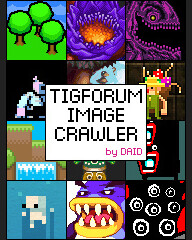Interview: Rod Humble
By: Derek Yu
On: April 5th, 2007
Caption: “Marriage ain’t easy.” —>
You guys ever take a philosophy course in college, and there’s always that one student that liked to spend 10 minutes of explanation and name-dropping before asking the professor a really, really simple question? Just to show how many books he’s read?
This interview kind of reminds of that, but it’s actually quite interesting. Whether The Marriage succeeds as a game is questionable, but there’s no doubt (in my mind, at least) that it is a fairly important piece of indie gaming. I hope Rod continues his experiments.
Also see: The Divorce
-
rinkuhero
-
Jason Rohrer (the interviewer)


